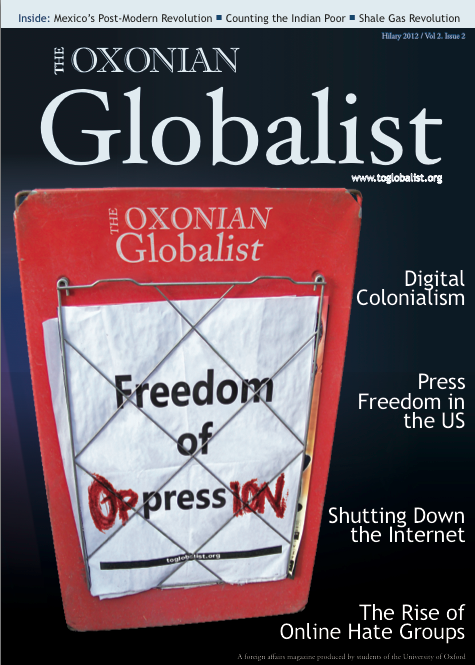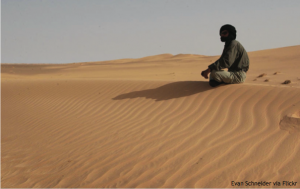When one thinks of a stalemate, the usual thought that springs to mind is playing a game of chess, when neither side can win and both will declare “Game Over” in order to finish. When one thinks of conflicts, and in particular the Western Sahara conflict, one is reminded a little of a game of chess: with the people acting as the pieces, the history being the moves made, and both Morocco and the Saharawi (indigenous people to the Western Sahara) refusing to cede a win to the other side.
Yet, there is a further twist to this game. Morocco does not recognise their opponent as the Saharawi. Rather, they believe their opponent to be Algeria, who recognisably backs the Saharawi people but makes no claim over the Western Sahara region. The Saharawi people largely live in refugee camps in Tindouf, Algeria, relying on food rations from international donors and living in severe conditions. There are no official estimates, but Algerian sources say there are as many as 170,000 Saharawi living in refugee camps.
The conflict began in the 1950s with the decolonisation of North Africa, which developed into a military affair after the Moroccan King called for “a peaceful liberation of the southern states” following the Spanish withdrawal. The liberation was named the “Green March” and took place in November 1975 – just a year after the International Court of Justice had confirmed Saharawi self determination in an Advisory Opinion. Approximately 350,000 Moroccans moved into the area which is recognised as being the Western Sahara territory: 252,120 square kilometers bordered by Morocco, Algeria, Mauritania and the Atlantic Ocean.
While Morocco entered the Western Sahara from the north, Mauritania also attempted to take control of the area from the south. However, Mauritania was unsuccessful and was ultimately forced to withdraw in 1979, having been defeated by the Frente Popular de Liberación de Saguía el Hamra y Río de Oro (POLISARIO). POLISARIO is the recognised representative of the Saharawi people. The group is outlawed by Moroccan Authorities, who regard it as a rebel force. In fact, the characteristic Moroccan view is that the Saharawi do not exist, believing that Algeria is holding them in the camps against their will and that they are actually Moroccan citizens.
Following Mauritania’s withdrawal, POLISARIO have retained control of the southern Western Sahara. This separation from the north was made permanent by the building of a large sand wall, known as the “Berm”, in 1985. The Saharawi people refer to this area as the “Free Zone”, hidden behind the “Wall of Shame”, which is their name for the Berm. The 2,700km long wall is lined with thousands of densely packed land-mines on the POLISARIO controlled side, and is patrolled by Moroccan troops. The Saharawi say that it is not uncommon to walk through the camps and see people with limbs missing as a result of a mine explosion. This is a tragic reminder of the difficulties of living in the Western Sahara, the place that the Saharawi regard as their homeland.
The fighting continued between POLISARIO and Morocco for about 15 years, only ending when the United Nations pushed for a ceasefire in 1991. This was supposed to be followed by a referendum, as suggested by the International Court of Justice in their 1974 Advisory Opinion, which would allow for self-determination within the region. Yet, despite the United Nations’ attempts, a referendum has never occurred and a stalemate developed ten years later in 2001. The main problem the United Nations faced was identifying those who would be eligible to vote, as the Saharawi were formerly a nomadic people. Despite the United Nations identifying 86,425 eligible voters according to the 1974 Spanish Census, Morocco adamantly rejected the list. Having to deal with each of these cases individually meant that the length of time taken to work out the eligible voters became impractical.
Despite various attempts at negotiations, none has so far been successful. Many mediators involved with the situation in the Western Sahara have regrettably concluded that unless the situation changes, an agreement would not be reached. Perhaps the only way to resolve the stalemate is through compromise on all sides, but the Saharawi seem unlikely to compromise their own identity and homeland, while the Moroccans are reluctant to relinquish territorial control. The international community has provided humanitarian aid to the Saharawi. However, continued support seems uncertain as rations continue to be cut for the refugee camps located in the hostile desert environment. Nevertheless, the Saharawi carry on in their struggle for national identity, instilling the same perseverance within their children, who are likely to have lived in refugee camps their entire lives. They are spurred on by a sense of injustice, and this, it seems, is what maintains the Saharawi spirit.




